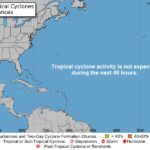The Barbados-based Caribbean Examinations Council’s (CXC) decision to remove the Agriculture Double Award from its syllabus has been described as “short-sighted” by agricultural economist Dr Omardath Maharaj, who believes this will have a ripple effect on food production in the Caribbean.
Speaking to Guardian Media on the decision, Dr Maharaj expressed deep concern over its implications, saying agriculture has always been part of the Caribbean economy.
While the CXC says the Single Award in Agriculture will still be offered, Maharaj said he was not satisfied with this consolation.
Instead, he believes the subject should be reassessed to include modernised agricultural technologies.
Saying CXC’s decision was shortsighted, particularly in light of the Caribbean’s challenges with food import dependence, climate change and the post-COVID-19 economic landscape, Maharaj called for the subject to be reinstated.
He pointed out the contradiction in making such a decision while regional leaders were championing initiatives like Caricom’s 25 by 25, which aims to reduce extra-regional food import dependency by 25 per cent by 2025.
Maharaj called for urgent reflection on why the Agriculture Double Award was developed in the first place and the type of human capital needed in the sector today. He stressed that agriculture education is not limited to basic planting but encompasses a wide range of related disciplines crucial for achieving regional development goals.
Highlighting the potential long-term impact of this decision, Maharaj warned that it might deter interest in tertiary education in agriculture and related fields.
“This will eventually have an impact on tertiary education in the field if we broadcast the message that nobody is interested, it is hard work, loss-making, and linked to roadside vending as marketing,” he said.
He cited St Vincent and the Grenadines and Guyana as examples of the power and potential of the agricultural economy, suggesting that these nations demonstrate what can be achieved with a robust focus on agriculture.
He also said the decision to remove the subject undermines the potential of youth involvement in agriculture, rural development, and an inclusive, self-sustaining future.
Maharaj called for a reassessment of the educational agenda, emphasising the need for better instructional designs, policy advocacy, and structural changes to address the current challenges.
Last week, CXC announced plans to discontinue agricultural science (double award) and mechanical engineering at the Caribbean Secondary Education Certificate and Caribbean Advanced Proficiency Examination levels; as well as electrical and electronic engineering, and technology and green engineering. The suspension of these subjects is expected to take effect in September 2025.Dr Wayne Wesley, the CEO of CXC, has said this decision was made due to a decrease in student engagement.










